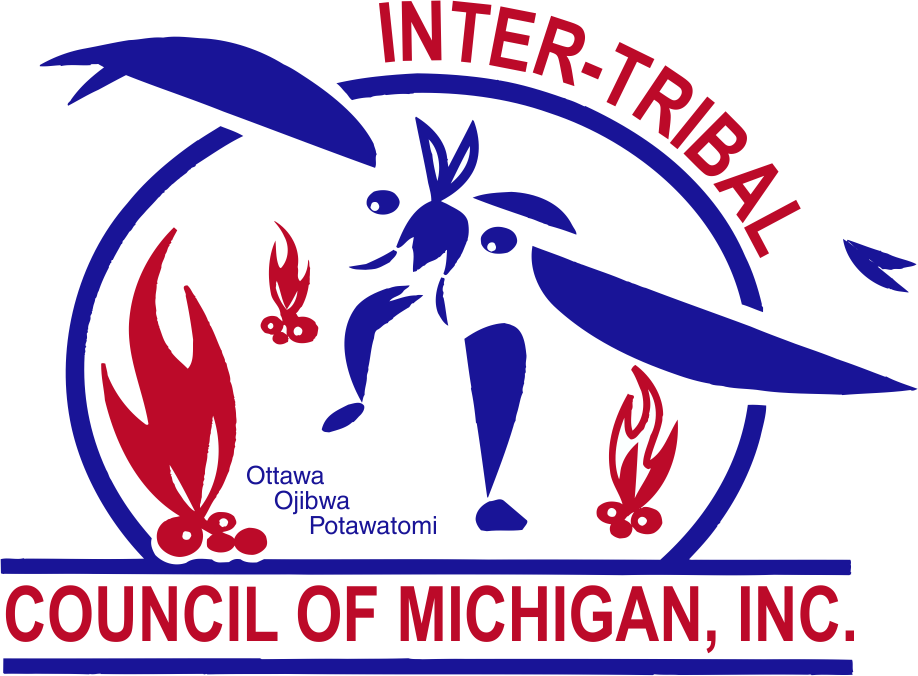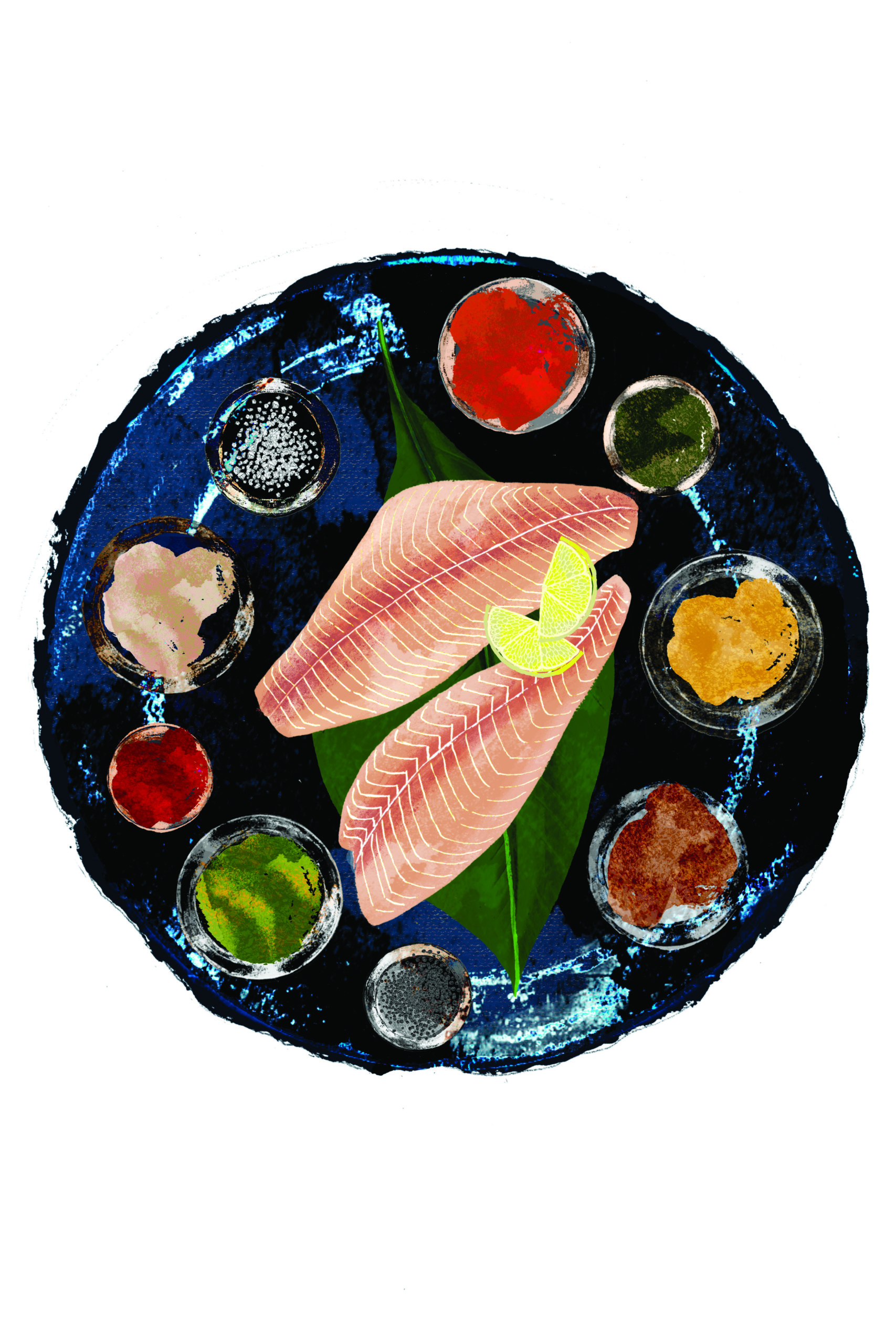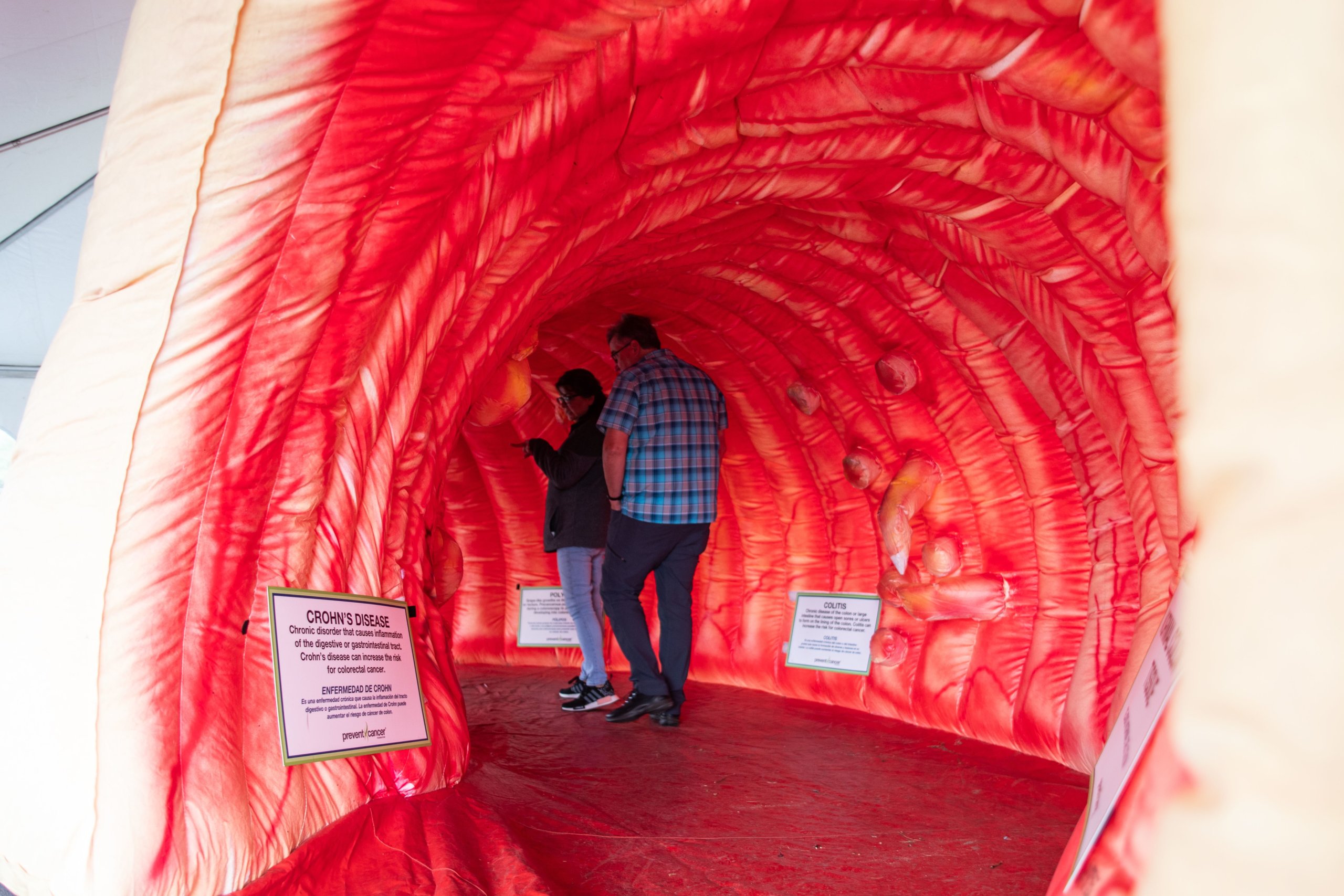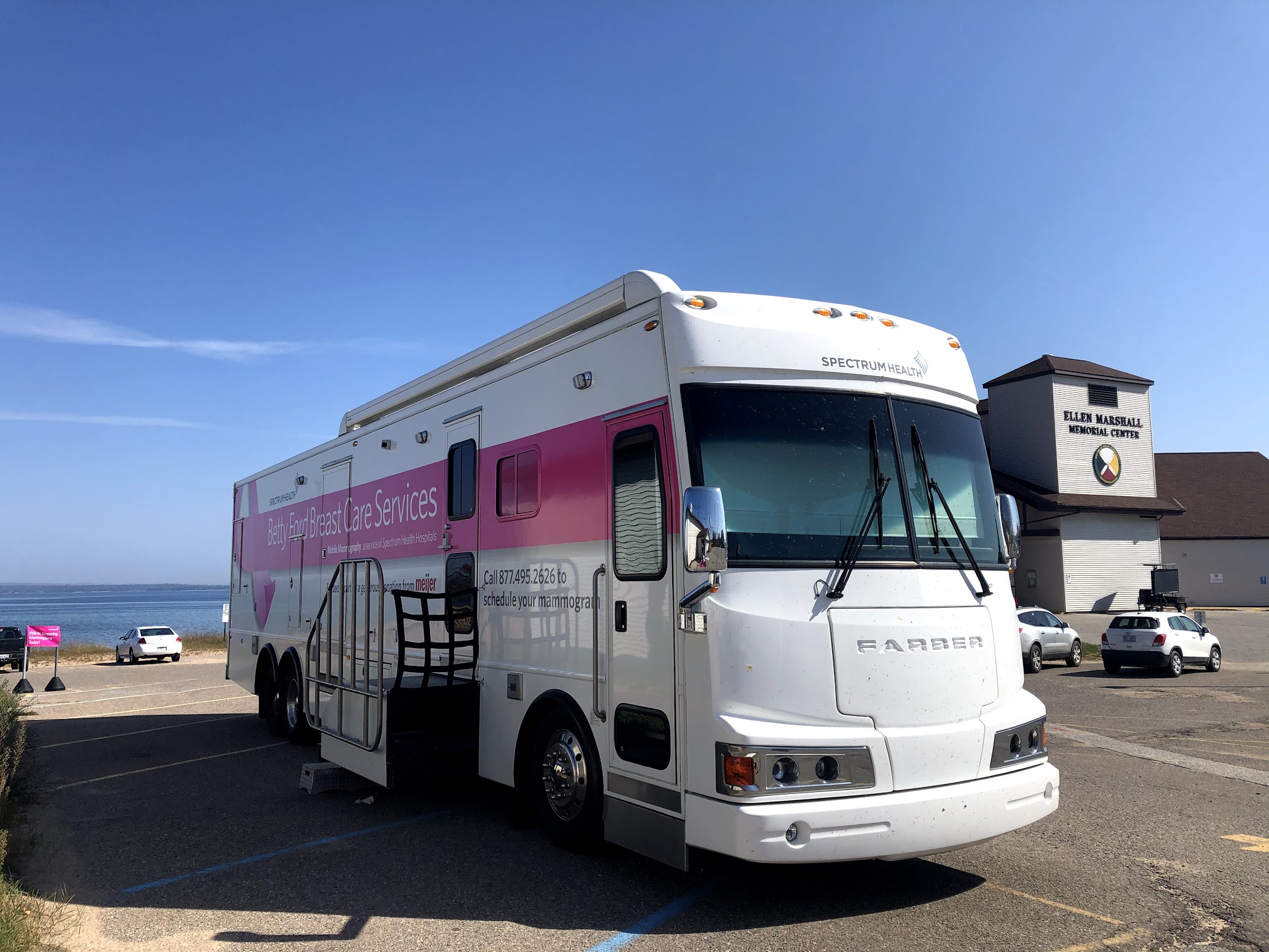Nutrition-related chronic disease (diabetes, cancer, and heart disease) impacts many and can be prevented through...
Read MoreTag: Cancer Prevention
Cancer Prevention » Page 2
Cardiovasular Health & Diabetes
The ITCM’s past REACH US project was a national, multilevel program that served as the cornerstone of the CDC’s efforts to eliminate racial and ethnic disparities in health. The ITCM’s REACH US program worked with three Tribes over five years in order for each diverse community to design, implement, and evaluate community-driven strategies to eliminate health disparities related to cardiovascular disease and diabetes mellitus.

Quick Access to Resources
For more information about the ITCM REACH project, please contact REACH Program Manager, Cathy Edgerly at (906) 632-6896 ext. 111 or cedgerly@www.itcmi.org
ITCM Tribal 4 X 4 Program
Goal: The ITCM 4 X 4 Program is funded through the Michigan Department of Community Health in order to create a Tribal Coalition which works to encourage 4 healthy behaviors: (1) Take part in a healthy diet, (2) Engage in regular exercise, (3) Avoid all commercial tobacco use, and (4) Take part in an annual clinical exam which includes these 4 clinical measures: Body Mass Index, Blood Glucose, Blood Pressure, and Cholesterol. All 12 Federally Recognized Tribes along with the American Indian Health and Family Services Agency participate.
Objectives: Each Tribe selects from a menu of objectives which include: 1) Promote the MI Healthier Tomorrow 4 x 4 media message and Take the Pledge to Lose 10%; 2) Adopt system guidelines/to screen all adults for Body Mass Index, Glucose, Cholesterol, and Blood Pressure; 3) Improve Healthy Work Environments; and 4) Increase healthier food choices and encouraging physical activity in tribal venues.
The project will create increased opportunities for improved nutrition and physical activity, resulting in reduced obesity rates and associated chronic disease.
Quick Access to Resources
Powered By EmbedPress
Powered By EmbedPress
Powered By EmbedPress
Cancer Prevention » Page 2
Nutrition and Food Access
Nutrition-related chronic disease (diabetes, cancer, and heart disease) impacts many and can be prevented through living a healthy lifestyle including physical activity and proper nutrition. In an ever-changing world with a complicated food supply, nutritional knowledge is more important than ever to support healthy behavior change. The ITCM has initiated this compendium of culturally appropriate materials to increase both the knowledge and the consumption of healthy traditional foods to prevent disease and to achieve improved health.
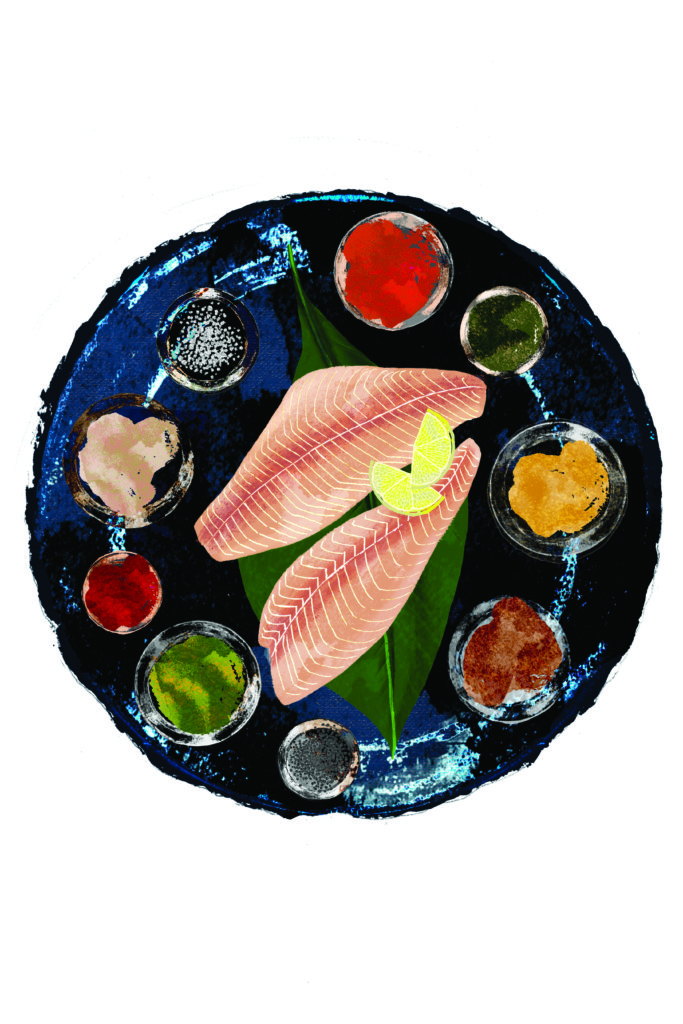
Resources
The USDA Food Distribution Programs on Indian Reservations (FDPIR) provides food to income-eligible Native American families. Below is a list of FDPIR locations in Michigan.
Little River Band of Ottawa Indians
2608 Government Center Drive
Manistee, MI 49660
Ken LaHaye, Director of Food Distribution
231-398-6715
kenlahaye@lrboi-nsn.gov
Little Traverse Bay Band of Odawa Indians
824 Charlevoix Avenue
Petoskey, MI 49770
Joe VanAlstine, FDPIR Program Specialist
231-242-1620
jvanalstine@ltbbodawa-nsn.gov
Pokagon Band of Potawatomi Indians
58620 Sink Road
Dowagiac, MI 49047
David Halquist, Jr., FDPIR Supervisor
888-281-1111
david.halquist.jr@pokagonband-nsn.gov
Bay Mills Indian Community
12497 W. Lakeshore Drive
Brimley, MI 49715
Kristine Schwiderson, FDPIR Director
906-248-2528
kschwiderson@baymills.org
Sault Sainte Marie Tribe of Chippewa Indians
3601 S. Mackinac Trail
Sault Sainte Marie, MI 49783
Tony Nertoli, FDPIR Director
906-635-6076
anertoli@saulttribe.net
Keweenaw Bay Indian Community
16613 Skanee Road
L’Anse, MI 49946
Darren Webb, FDPIR Director
906-524-7340
dwebb@kbic-nsn.gov
- MSU Extension and tribal partners highlight Indigenous foods through Cooking Matters program
- Food Sovereignty: Clancy Harrison on Topic of Food Insecurity
- Cookbooks
- The Sioux Chef Mission is committed to revitalizing Native American cuisine and reclaiming an important culinary culture long buried and often inaccessible.
- Eating with the Seasons – Anishinaabeg Great Lakes Region – Derek Nicholas
Anishinaabek Cooking Videos
Anishinaabek Cooking Videos

American Indian Commercial Tobacco Program (AICTP)
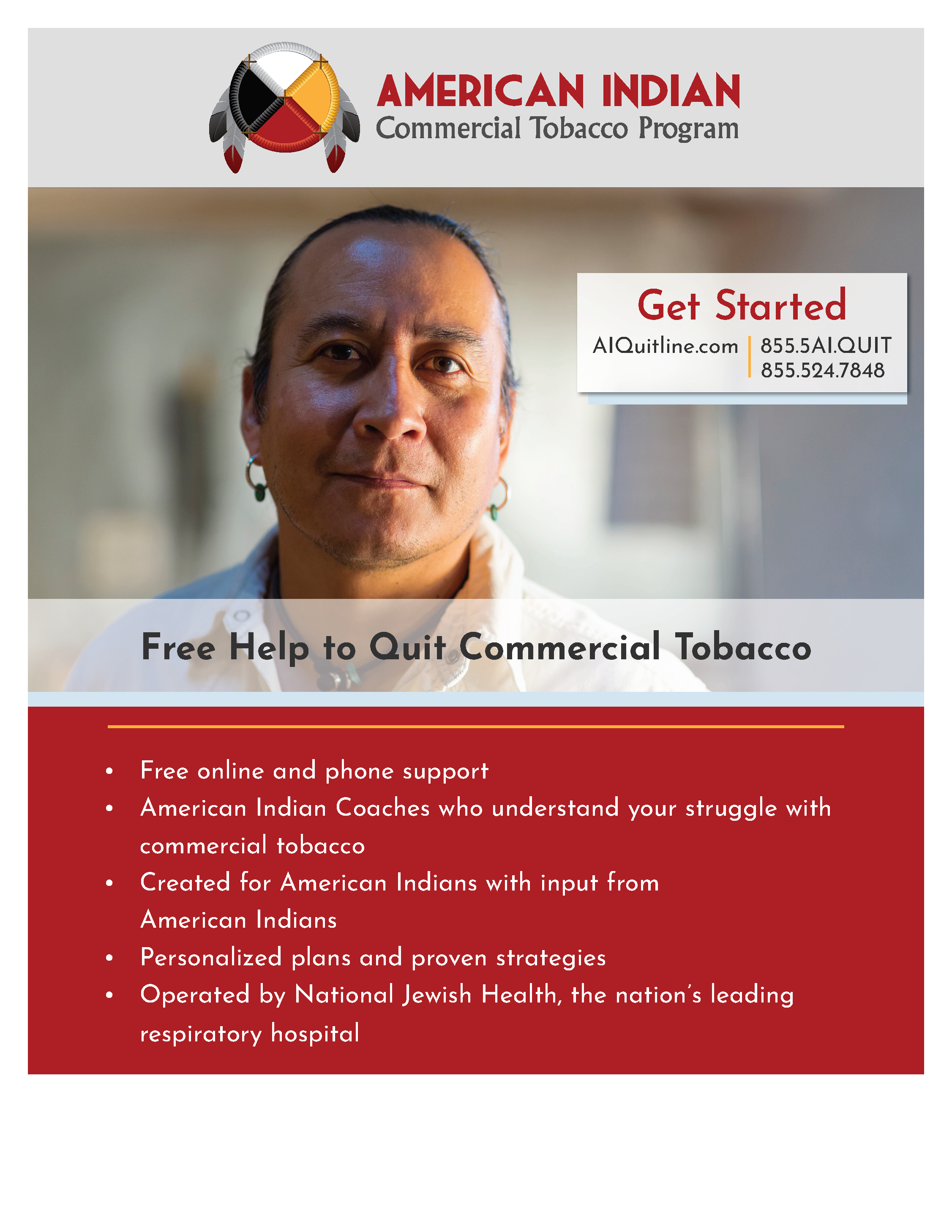
The American Indian Commercial Tobacco Program (AICTP) is LIVE and ready to use!
Call today to receive free, culturally-tailored help, including:
- Up to 10 coaching calls per quit attempt with a dedicated Native coach.
- 8 weeks of nicotine replacement therapy with combination medication as an option.
- Focus on commercial tobacco use.
- Open to men, women, and elders of all ages and tribal nations.
- AICTP Website: https://aiquitline.com/
- Download PDF Poster
For our future generations, call today!
855-5AI-QUIT
HOURS
Monday – Friday: 9:00 a.m. – 11:00 p.m. Eastern Time
Saturday: 10:00 a.m. – 5:00 p.m. Eastern Time
Sunday: 10:00 a.m. – 6:30 p.m. Eastern Time
Frequently Asked Questions
Q. Can I call if I am pregnant?
A. Yes
Q. Can youth under 18 call the quitline?
A. Yes
Q. Can I call for help with smokeless tobacco?
A. Yes
Tobacco Screening Policy
Commercial tobacco use is a well known problem among Native American communities in Michigan. To help address this issue the Inter-Tribal Council of Michigan has worked to help address this problem in a number of ways including addressing tribal clinical policies.
Please see the following resources to learn more about efforts of work done at the clinical policy level in tribal sites in Michigan. These resources cover policy, signage, youth screening, using the CHANGE tool and communication campaigns.
National Native Network
We are a national network of Tribes, tribal organizations and health programs working to decrease commercial tobacco use and cancer health disparities among American Indians and Alaska Natives (AI/AN) across the U.S. We offer technical assistance, culturally relevant resources, and a place to share up-to-date information and lessons learned, as part of a community of tribal and tribal-serving public health programs.
We strive to decrease cancer-related health disparities among AI/AN communities and promote the roles of traditional tobacco and other traditional medicines and ways of living, improving public health while protecting tribal sovereignty and resiliency.
The strength of our Network lays in partnerships between Tribes and tribal, national, state, and local organizations across Indian Country. The Network is intimately connected to the communities we serve and brings a wealth of knowledge of culturally based approaches for commercial tobacco and cancer prevention and control.
The National Native Network is jointly funded by the Office on Smoking and Health (OSH) and Division of Cancer Prevention and Control (DCPC) under Cooperative Agreement # 1U58DP004979-01. The Network is administered by the Inter-Tribal Council of Michigan and directed by a board composed of four partner tribal organizations:
Visit our website for full information, resources, and social media links. Email us at nnn@www.itcmi.org for any questions.
Cancer Prevention » Page 2
Cancer Prevention & Control Programs
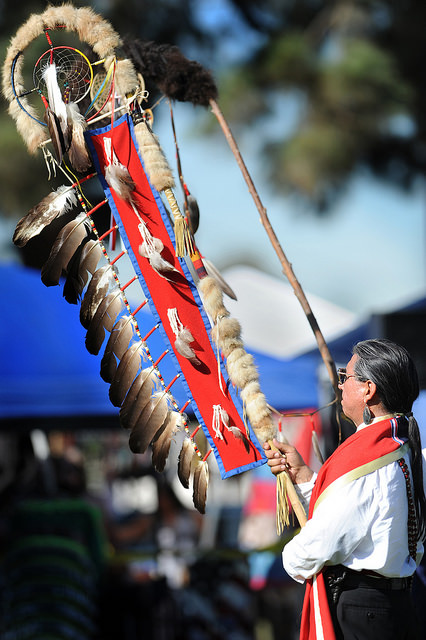
Programs
Colorectal Cancer Screening
Colorectal Cancer Awareness Inter-Tribal Council of Michigan, Inc. InstitutionalColorectal Cancer Awareness SAULT STE. MARIE —...
Read MoreBreast and Cervical Cancer Control (BC3NP)
The Inter-Tribal Council of Michigan supports Michigan tribal communities in reducing structural barriers to breast...
Read MoreNutrition and Food Access
Nutrition-related chronic disease (diabetes, cancer, and heart disease) impacts many and can be prevented through...
Read More